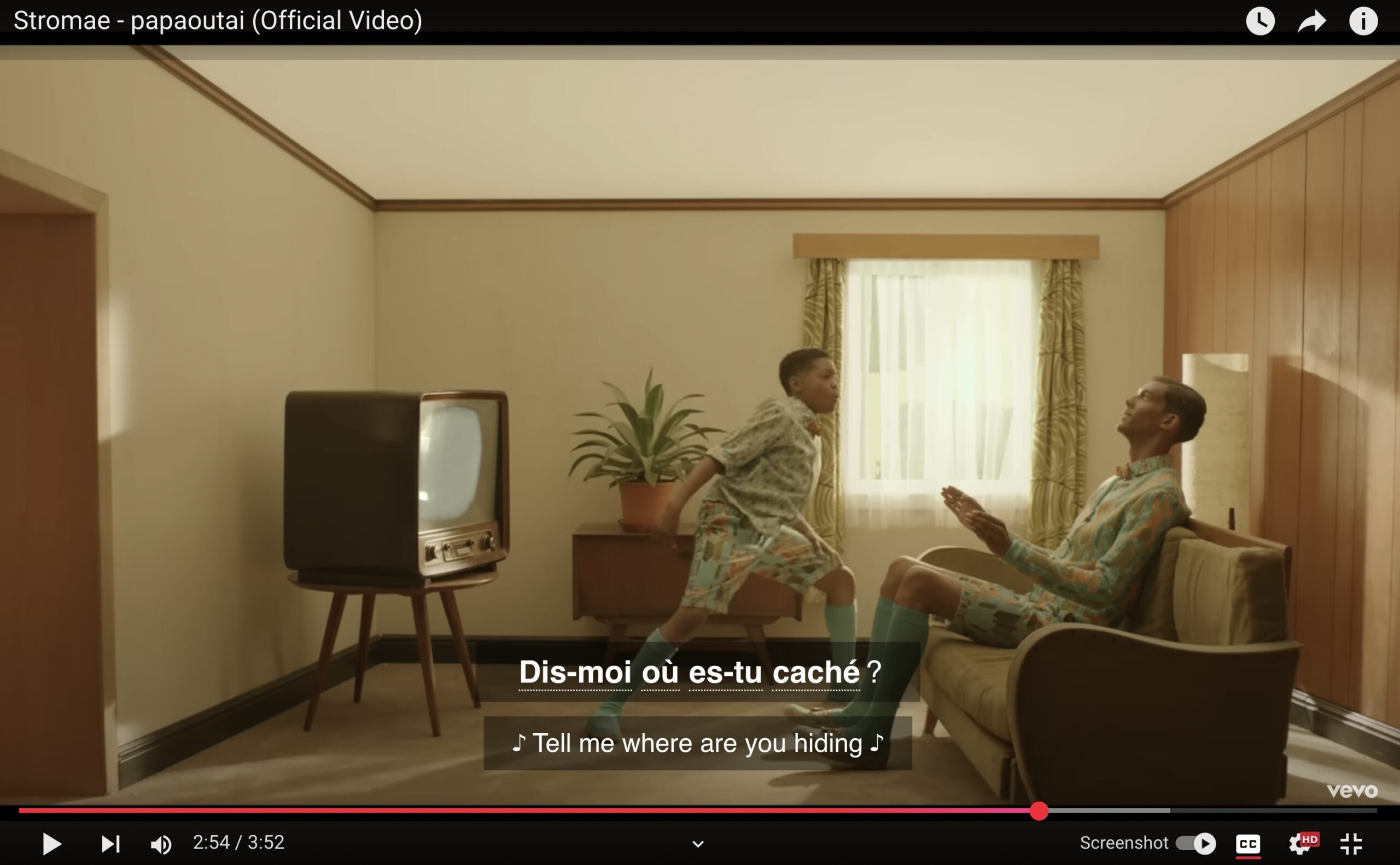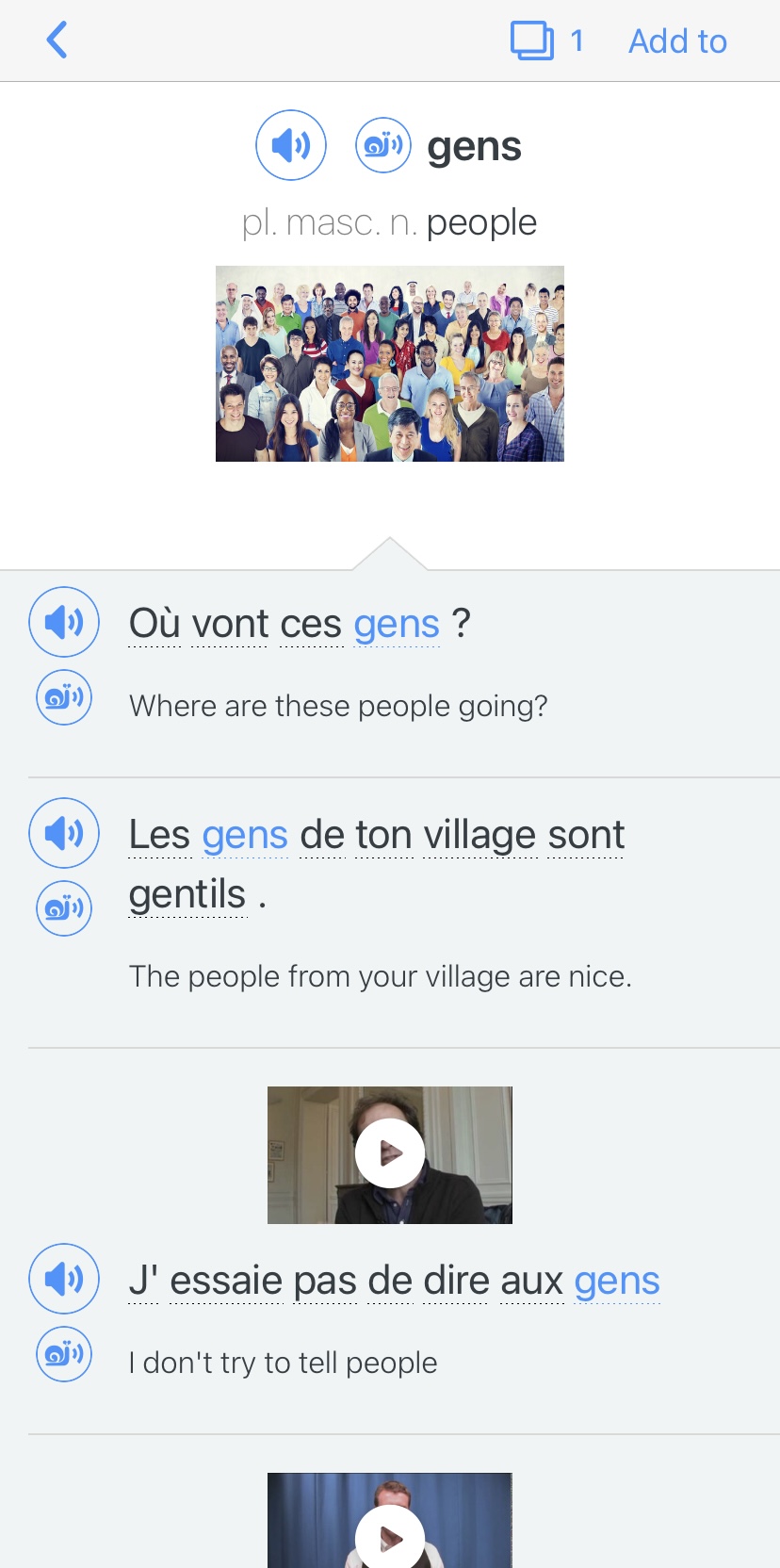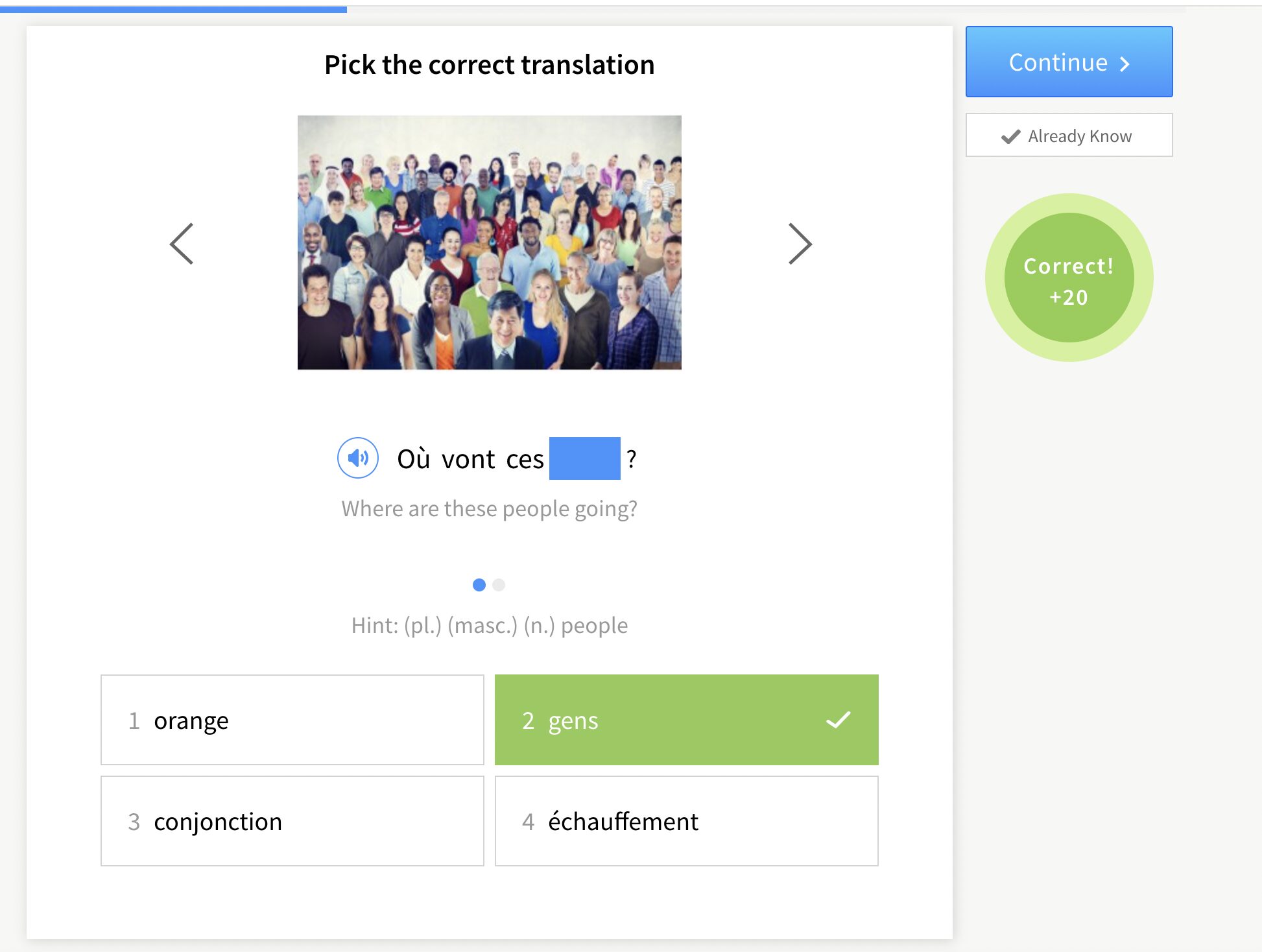10 Tricks to Sound French

Do you dread the moment when your French conversation partner senses your foreignness and switches the conversation from French to English? Whatever the reason for this might be, you’re dying to sound so perfectly French that natives will never guess that you’re a foreigner.
So, if you want to sound so French that you pass for a native, then check out this post for 10 simple but effective tricks to sound (and seem) more French, from adjusting your attitude to learning about French culture.
Download: This blog post is available as a convenient and portable PDF that you can take anywhere. Click here to get a copy. (Download)
Having the Right French Attitude

Having the right attitude is key to seeming French. You can do this with both mannerisms and language use.
1. Act as confident as possible
When said with confidence, even mispronunciations and mistakes can be perfectly understood or overlooked. Speaking sheepishly will do you no favors. Allez-y! (Go for it!)
2. Find French equivalents to expressions you use in English
Think of some fun phrases you always use in English that foreign people wouldn’t think to use or necessarily understand.
For example, in English, we say things like “give it a go!” instead of just saying “try.” You might say “are you up for doing…” rather than “do you want to do…”
It seems like a minor detail, but using and understanding these phrases is your key to coming across as a native, or even just as a capable bilingual.
These are essentially just different versions—perhaps slightly more complex ways—of saying simple things. This adds color and natural flavor to our daily language.
Beginners in English might not know how to use all of these, but they certainly aren’t beyond anyone’s capability. They’re easy to learn—it’s just about the level of familiarity with the language that natives have, and having the ability to play around with word usage and phrasing.
For some help on this, check out this excellent video that goes over seven French phrases to use in abundance to make yourself sound more like a native:
3. Train your English mouth to do French pronunciations
Make yourself aware of those certain tricky sounds and pronunciations that your darned English-trained mouth just can’t get the hang of.
There are definitely going to be one or two trouble areas when it comes to learning French as an English speaker, as your mouth physically isn’t used to pronouncing certain things.
You probably already know exactly which sounds I’m referring to, because you’ve stumbled over them in the past.
You literally need to train and stretch the muscles to correctly enunciate as a native Frenchie would. Once you have identified which specific sounds you’re struggling with, you can start to fix the problems and stop sounding like a hopeless foreigner.
For example, the importance of correctly pronouncing the difference between dessus and dessous (above and below) is a common one.
Practice as much as you can, whenever you can. They’ll eventually fall out of your mouth more naturally.
To practice getting down your French pronunciation, check out this video about common French pronunciation mistakes and how to correct and avoid them in the future:
Mastering French Mannerisms

The following points are five classic French conversational techniques and mannerisms to help you sound just a bit more français:
4. The tactical use of bah
Fairly difficult to translate, the French bah is used rather regularly and can make your speech sound very authentic.
In answer to an obvious question perhaps:
Tu aimes bien la pizza? (Do you like pizza?)
Bah oui, bien sur! (Well, yes, of course!)
Or something like the following:
Tu adores le brocoli? (Do you love broccoli?)
Bah non! Je déteste! (No, I hate it!)
Or as a deep, elongated syllable to fill gaps while you think:
Qu’est-ce que tu fais le weekend? (What are you doing on the weekend?)
Baaaaaahh, en fait je ne sais pas encore. (Well, actually I don’t know yet)
5. Adding quoi to the ends of sentences
This one is also not easy to translate, but it would be the French equivalent of “whatever.”
So, you might imagine that it shouldn’t be used when talking formally, but it’s used often in casual conversation and can perfectly round off a sentence.
C’est quoi, ça? (What is that?)
Euuh, je ne sais pas exactement mais je pense que c’est une sorte de nourriture, quoi. (Um, I’m not really sure but I think it’s a type of food or whatever.)
6. Using eh, ah and hein like there’s no tomorrow
Whether it’s to fill space while you think or to provoke a response, these elongated vowels are very useful when speaking French.
For example, in English we add “don’t you?”/ “aren’t you?”/ “isn’t it?” to the end of statements to toss the conversational ball back into the other person’s court. The French will simply say: hein?
Il fait beau aujourd’hui, hein? (It’s nice weather today isn’t it?)
Try it with raised eyebrows for added French effect.
7. Plentiful use of voilà
The slangy English phrases “so, yeah” or “so, there you go” would probably be best translated into French as simply “voilà.”
When you can’t think of anything else to say at the end of a sentence, you can’t go wrong with a voilà. Sometimes even two. Voilà voilà.
For more super useful French slang words, check out this video that goes over more than 15 highly used slang terms:
8. Not forgetting the classic French shrug
In response to a question to which you don’t know the answer, respond the French way with an exaggerated shrug, raised eyebrows and add a “baaah, je sais pas, moi!” for good measure.
FluentU takes authentic videos—like music videos, movie trailers, news and inspiring talks—and turns them into personalized language learning lessons.
You can try FluentU for free for 2 weeks. Check out the website or download the iOS app or Android app.
P.S. Click here to take advantage of our current sale! (Expires at the end of this month.)
Learning French Culture

Seeming completely at ease whilst in a French-speaking environment is about more than just talking well enough to impress the natives.
In order to blend in, it’s helpful to know the basics of French culture—what’s generally acceptable, what’s not acceptable and what’s going to make you look like an outsider.
To do this, take pleasure in absorbing the culture itself. This is a lot more enjoyable than slaving away at those tiresome verb conjugation exercises, anyway.
So, how can you learn these kinds of things on your own? And how can you see your new French tricks brought to life and used in action?
Try to read French books with modern language and magazines.
Watch French television programs, track down some classic French films, look up interviews with French celebrities and really pay attention to the way they talk in context.
You can also try using an immersive language learning program like FluentU.
FluentU takes authentic videos—like music videos, movie trailers, news and inspiring talks—and turns them into personalized language learning lessons.
You can try FluentU for free for 2 weeks. Check out the website or download the iOS app or Android app.
P.S. Click here to take advantage of our current sale! (Expires at the end of this month.)
However you do it, try to absorb as much of the culture as you can.
9. Learn about cuisine
Food and drink is a sacred part of French culture.
Meals play a major role in French social life, and a dinner party or evening out is to be a long, enjoyable event, not to be rushed or half-hearted.
Similarly, don’t be the person who’s mainly interested in staying at the bar all night after wolfing down their dinner at the beginning. The two parts of the evening, food and drink, come hand in hand.
10. Perfect your personal presentation
The way you present yourself is a very important aspect of the culture. Presentation refers to the way you dress, act and speak.
In general, the fashion is generally very understated. You’re meant to be well-dressed but not in anything fussy or fancy.
In the way you converse, never raise your voice or speak over people—it’s polite to stay composed and respectful.
Your combined knowledge of French language, habits and culture will not only give you the resources and the confidence to engross yourself in France and everything French!
Before you know it, you’ll be talking to someone French who feels so comfortable conversing with you that the question “where are you from?” won’t even come up.
Download: This blog post is available as a convenient and portable PDF that you can take anywhere. Click here to get a copy. (Download)
And One More Thing…
If you’re like me and prefer learning French on your own time, from the comfort of your smart device, I’ve got something you’ll love.
With FluentU’s Chrome Extension, you can turn any YouTube or Netflix video with subtitles into an interactive language lesson. That means you can learn French from real-world content, just as native speakers actually use it.
You can even import your favorite YouTube videos into your FluentU account. If you’re not sure where to start, check out our curated library of videos that are handpicked for beginners and intermediate learners, as you can see here:
FluentU brings native French videos within reach. With interactive captions, you can hover over any word to see its meaning along with an image, audio pronunciation, and grammatical information.
Click on a word to see example sentences and other videos where it's used in different contexts, then add it to your flashcards. For example, if I tap on the word "gens," this is what pops up:
Want to make sure you remember what you've learned? We’ve got you covered. Each video comes with exercises to review and reinforce key vocab. You’ll get extra practice with tricky words and be reminded when it’s time to review so nothing slips through the cracks.
The best part? FluentU tracks everything you’re learning and uses that to create a personalized experience just for you. Start using the FluentU website on your computer or tablet or, better yet, download our app from the App Store or Google Play.
Click here to take advantage of our current sale! (Expires at the end of this month.)













